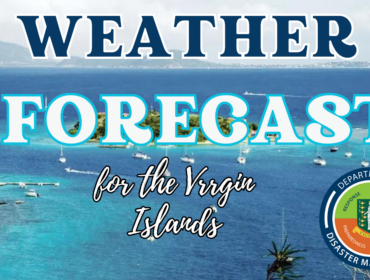Wednesday, May 11 – The Virgin Islands are expected to soon benefit from a Continuously Operating Caribbean Global Positioning System (GPS) Observational Network (COCONet) which will aid in the monitoring, understanding and prediction of earthquakes, hurricanes, flooding, volcanoes and landslides.
Regional Engineer Barrett Friesen of the University NAVSTAR Consortium (UNAVCO), a Colorado-based non-profit membership-governed consortium that operates GPS networks worldwide, is currently assigned to the COCONet project and is here in the Virgin Islands undergoing site evaluations to identify a suitable place for a permanent GPS station.
In a response to what is being done in the Virgin Islands, Mr. Friesen said, “This Caribbean-wide project is seeking to understand the plate tectonics and the hazards posed by earthquakes that was exemplified by the major earthquake that occurred in this region in January of 2010, and the same plate boundary that ruptured Haiti and which passes very close to the Virgin Islands.”
A meeting was held in Puerto Rico in February of this year to refine a station sitting plan to install fifty continuously operating GPS stations and weather station in the Caribbean, and to establish a method to enhance science and infrastructure capacity building in the Caribbean. The DDM participated in this meeting and expressed an interest in having one of the GPS stations located on Virgin Gorda. The existing GPS station on Anegada has the minimum criteria to be included in the COCONet.
During his site evaluation on Virgin Gorda Mr. Friesen further said, “Getting a better scientific understanding of the fault that is in close proximity to the Virgin Islands will allow for more accurate models of the earth’s crust which will help in developing seismic hazards map based on where the faults are located, how often they rupture, and what the magnitudes were. These are some of the things that a permanent GPS station can contribute towards.”
GPS and meteorological Data collected from the stations daily by the UNAVCO data center located in Boulder, Colorado can be used to study solid earth processes such as tectonic plate motions, tectonic plate boundary interaction and deformation, including earthquake cycle processes and risks. This data will eventually become available for use by scientists, government agencies, educators, students and the private sector.
COCONet is a four-year award that is expected to add 50 high precision permanent GPS station to 50 existing ones in the Caribbean and Caribbean border nations. The instruments are able to detect millimeter changes in movement of the Earth’s crust. COCONet will provide free, high-quality, open-format GPS and meteorological data for these stations via the internet.



